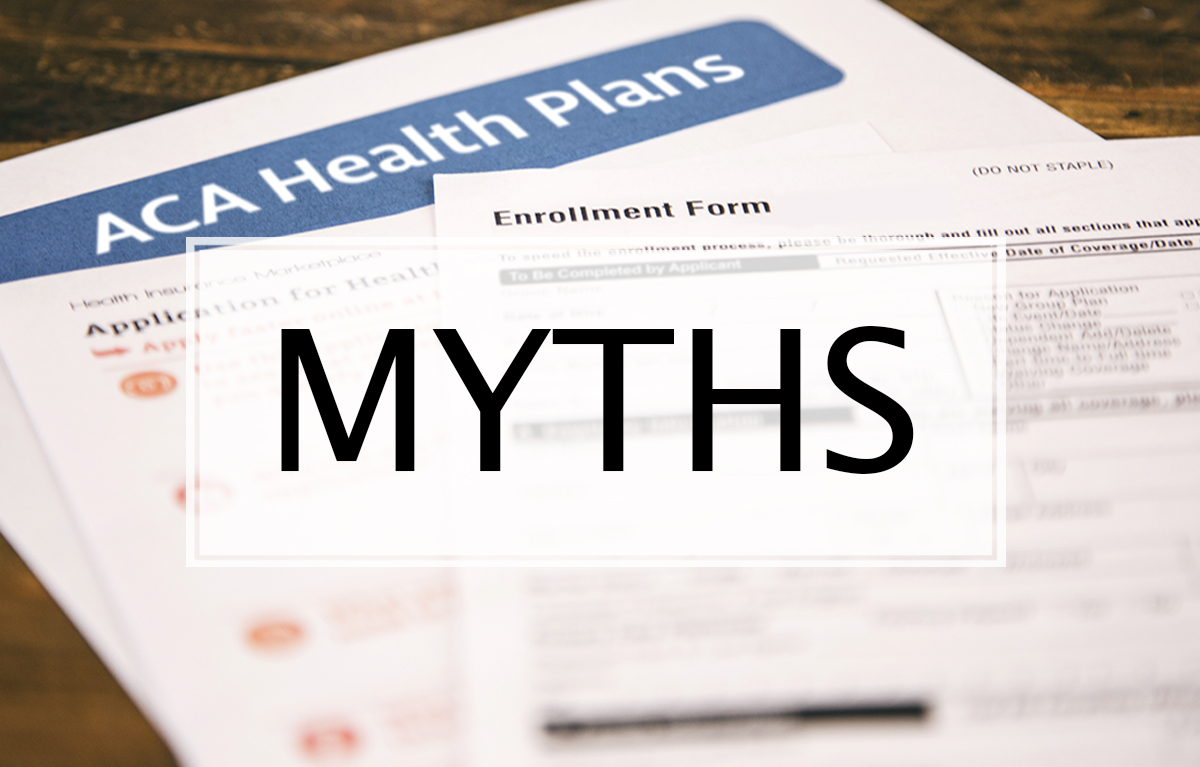Alternative insurance arrangements have been gaining traction since the introduction of the Affordable Care Act (ACA) in 2010, followed by the 21st Century Cures Act in 2016.
These Acts paved the way for Qualified Small Employer Health Reimbursement Arrangements (QSEHRA) and Individual Coverage Health Reimbursement Arrangements (ICHRA), two alternatives to traditional group health plans, but how do they compare?
Listen to this article:
Agents looking to connect with a new client base and offer support for those under age 65 should consider working with ICHRA and QSEHRA clients.
Exciting opportunities await if you connect with local employers and small businesses!
ICHRA Overview for Insurance Agents
What Is an ICHRA?
The first Trump administration prioritized the creation of health reimbursement arrangements. An executive order issued in 2017 allowed these organizations to be formed to encourage “healthcare choice and competition.”
With an ICHRA, employers of any size can reimburse employees for premium costs incurred by purchasing individual health insurance through the marketplace. These reimbursements are tax-free with no annual caps. An ICHRA enrollment through the marketplace offers the same coverage and benefits that come with a standard ACA enrollment – the only difference is the premium may be partly or wholly reimbursed by the employer.
With an ICHRA, employers of any size can reimburse employees for premium costs incurred by purchasing individual health insurance through the marketplace.
By creating an ICHRA, businesses satisfy the employer mandate under the ACA if they have 50 or more employees. Once an employer creates an ICHRA, their employees will be notified in writing. For employees, this triggers a Special Enrollment Period (SEP) to enroll in coverage through the marketplace. Agents have a couple of ways to help with sales and reap rewards.
How Can Agents Benefit from ICHRAs?
Agents can earn referral credits for referring employers to third-party administrators, or they can serve as the Agent of Record!
While Ritter is not directly training, supporting, or facilitating ICHRA enrollments, we’re proud to have a partnership with a third-party administrator ICHRA agents can work with. Nexben is here to help you support employers presenting ICHRA to their employees. Each partner has different opportunities available, with varying engagement levels.
Work with Ritter’s ICHRA Partner!
Nexben — Allows agents to assist with ICHRA administration and payment processing. They also have a referral option and an option to maintain Agent of Record status on policies. Agents interested in the AOR arrangement must use an alternative enrollment platform such as HealthSherpa.
Register to become a Ritter agent to take advantage of ICHRA benefits with these recommended organizations! If you’re already a Ritter agent, contact a member of our Sales team to express your interest and hear more about the referral program!
QSEHRA Overview for Insurance Agents
What is a QSEHRA?
QSEHRAs are similar to ICHRAs. Employers can reimburse employees for health insurance premiums and select out-of-pocket medical costs. Those reimbursements are tax free, which can add flexibility for small employers and their employees.
QSEHRAs have no minimum contribution requirements, so employers can choose what is possible for them. However, the IRS has established annual maximum contribution limits. The 2025 limit for individual coverage is $6,350, and the limit for family coverage is $12,450. With these maximum limits, there are possibilities for agents looking to gain new clients and assist employees! Because the maximum limits are high, small businesses have more options with QSEHRA than traditional group plans.
How Can Agents Get Involved with QSEHRA?
Agents can get involved with QSEHRA by advertising their marketplace support services and assisting small businesses in establishing QSEHRAs of their own. When an employer establishes a QSEHRA, their employees may seek assistance from a local insurance agent to select the right plan for their needs. Agents can get involved by marketing their services to small businesses in their community. We also recommend having a top-notch social media strategy in place!
Having strong community rapport and connections with local employers can be an avenue way to grow your business and earn referrals. Employees can come to you looking for specific plan recommendations or help deciding how to spend their employer contribution. The marketplace can be overwhelming, and offering support services for QSEHRA recipients can be an excellent service to provide.
At this time, Ritter does not provide support for QSEHRA arrangements.
Employees can come to you looking for specific plan recommendations or help deciding how to spend their employer contribution.
What’s the Difference Between ICHRA & QSEHRA?
ICHRA and QSEHRA are similar, yet there are key differences between them, ICHRAs are available for employers of any size — small, medium, or large. QSEHRAs are only for employers with less than 50 full-time employees. Unlike QSEHRA, ICHRA does not have any minimum contributions. Which means that employers who qualify can establish a program that suits them. Additionally, there are no maximum contributions either. ICHRA is not subject to the strict IRS regulations that surround QSEHRA.
View the differences between ICHRA and QSEHRA below!
Group Health Insurance Overview for Insurance Agents
What Is Group Health Insurance?
Unlike the two arrangements mentioned previously in this post, you’re likely familiar with traditional group health insurance plans. These plans are insurance coverage that is most often provided by an employer to a group of employees. Eligible employees may be presented with a selection of plans to choose from, but these benefits are clearly defined by the insurance company and the employer.
SHOP ACA Health Plans
In the ACA market, the Small Business Health Options Program (SHOP) is a type of group health insurance but can be limited in its reach. This program allows small employers to extend health or dental benefits to their employees at a lower cost. SHOP plans are delivered through the marketplace, but this arrangement is different than ICHRA. Please note that SHOP plans are not available in all states.
To provide coverage through SHOP, an employer must:
- Have one to 50 full-time employees
- Offer coverage to all full-time employees
- Enroll 70 percent of employees in health insurance
- Have an office or work site within the state operating the SHOP
How Can Agents Sell Group Health Plans?
If you’re interested in selling group health insurance plans, the process is similar to other insurance products you’re already contracted to offer. To start making group health insurance sales, you’ll need to contract and get appointed with carriers. To get started, you can contact the carriers directly. At this time, Ritter does not provide support for agents selling group health insurance. However, we can support you with individual insurance product sales, such as ACA, Medicare, and more!
Agents can register to provide SHOP help by completing the SHOP Privacy and Security Agreement in the MLMS: Marketplace Learning Management System. You can connect with employers and employees needing assistance by using Find Local Help or advertising your services to local businesses.
After completing carrier appointments and contracts, you’ll need to find clients. Generate new business by prospecting. We recommend going into your community and making valuable connections with employers and small businesses to find new clients. A strong social media strategy also allows people to find you and your business. By following these strategies and meeting new groups of clients, your business could flourish.
Group Health Plans vs. ICHRAs & QSEHRAs
Although group insurance plans are the most common insurance option for employed individuals, HRAs are becoming more common, especially among small businesses.
Group insurance typically offers one or a few defined insurance coverage options with one carrier. With this, employers have more control over plan design and costs. Additionally, premium costs are shared between the employer and employee. However, employers are subject to annual rate increases that are out of their control. Typically, spouses and children can also receive coverage under an employer’s group plan.
ICHRA and QSEHRAs, conversely, allow employees to choose a marketplace plan that suits their needs, giving the individual more control. Employees will submit claims for reimbursement for qualified health care costs or services under the HRA options. This allows employers to have more control over costs. Additionally, spouses and other dependents can receive coverage if outlined by the employer and the insurance company by using employer contributions.
ICHRAs and QSEHRAs can be valuable for both agents and small business owners because of the power of choice individuals have. With this opportunity to choose, they could need assistance or guidance when it comes to selecting a plan!
Explore all of the opportunities for new sales in the under-65 market! By extending sales support for ICHRA, QSEHRA, or group insurance, you’re leading a new pathway to fresh sales and new clients!
If you haven’t already, Register with Ritter for free sales support and the opportunity to refer ICHRA employers for referral credit! If you are interested in our Nexben partnership, contact our Sales team.







Not affiliated with or endorsed by Medicare or any government agency.
Share Post